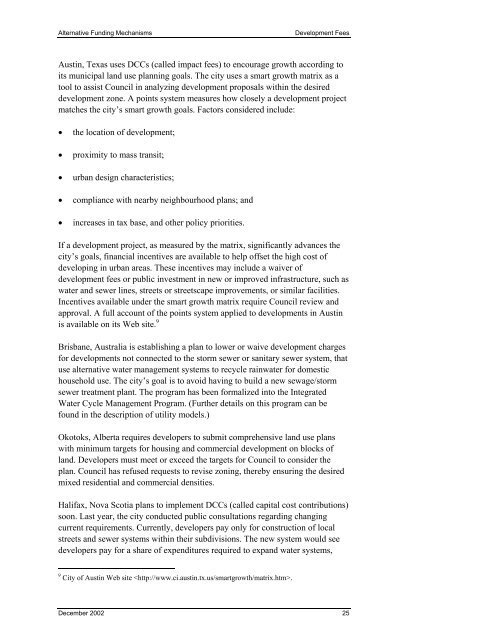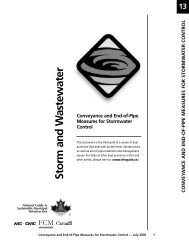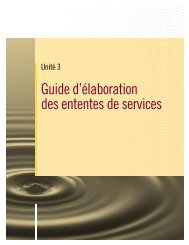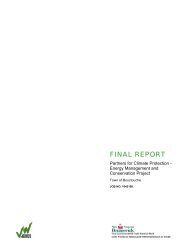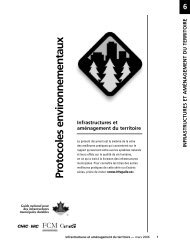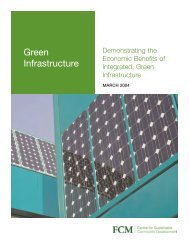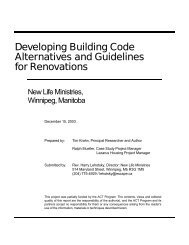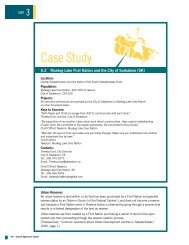ALTERNATIVE FUNDING MECHANISMS - FCM
ALTERNATIVE FUNDING MECHANISMS - FCM
ALTERNATIVE FUNDING MECHANISMS - FCM
Create successful ePaper yourself
Turn your PDF publications into a flip-book with our unique Google optimized e-Paper software.
Alternative Funding Mechanisms Development Fees<br />
Austin, Texas uses DCCs (called impact fees) to encourage growth according to<br />
its municipal land use planning goals. The city uses a smart growth matrix as a<br />
tool to assist Council in analyzing development proposals within the desired<br />
development zone. A points system measures how closely a development project<br />
matches the city’s smart growth goals. Factors considered include:<br />
• the location of development;<br />
• proximity to mass transit;<br />
• urban design characteristics;<br />
• compliance with nearby neighbourhood plans; and<br />
• increases in tax base, and other policy priorities.<br />
If a development project, as measured by the matrix, significantly advances the<br />
city’s goals, financial incentives are available to help offset the high cost of<br />
developing in urban areas. These incentives may include a waiver of<br />
development fees or public investment in new or improved infrastructure, such as<br />
water and sewer lines, streets or streetscape improvements, or similar facilities.<br />
Incentives available under the smart growth matrix require Council review and<br />
approval. A full account of the points system applied to developments in Austin<br />
is available on its Web site. 9<br />
Brisbane, Australia is establishing a plan to lower or waive development charges<br />
for developments not connected to the storm sewer or sanitary sewer system, that<br />
use alternative water management systems to recycle rainwater for domestic<br />
household use. The city’s goal is to avoid having to build a new sewage/storm<br />
sewer treatment plant. The program has been formalized into the Integrated<br />
Water Cycle Management Program. (Further details on this program can be<br />
found in the description of utility models.)<br />
Okotoks, Alberta requires developers to submit comprehensive land use plans<br />
with minimum targets for housing and commercial development on blocks of<br />
land. Developers must meet or exceed the targets for Council to consider the<br />
plan. Council has refused requests to revise zoning, thereby ensuring the desired<br />
mixed residential and commercial densities.<br />
Halifax, Nova Scotia plans to implement DCCs (called capital cost contributions)<br />
soon. Last year, the city conducted public consultations regarding changing<br />
current requirements. Currently, developers pay only for construction of local<br />
streets and sewer systems within their subdivisions. The new system would see<br />
developers pay for a share of expenditures required to expand water systems,<br />
9 City of Austin Web site .<br />
December 2002 25


